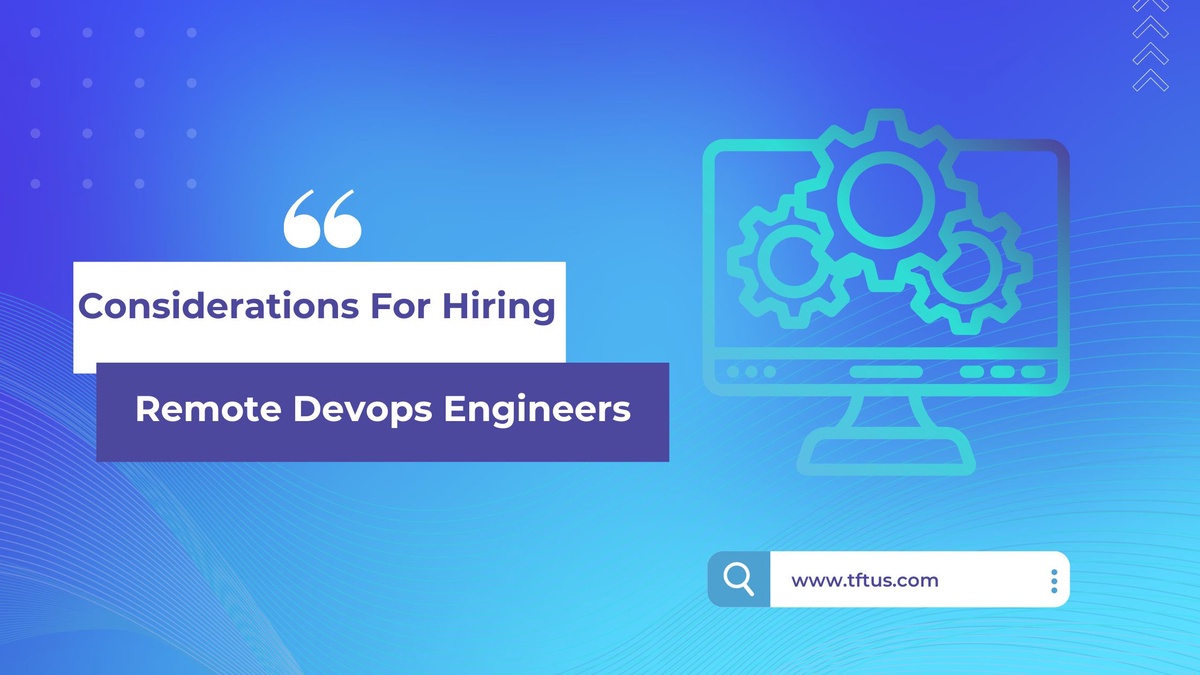As more and more companies embrace remote work, hiring remote DevOps engineers has become increasingly common. However, hiring remote DevOps engineers can be challenging, and it's important to consider a number of factors to ensure that you find the right person for your organization. Here are some key considerations to keep in mind when hiring remote DevOps engineers.
1. Technical skills
The first and most important consideration when hiring remote DevOps engineers is their technical skills. DevOps engineers need to be well-versed in a wide range of technologies, including operating systems, virtualization, networking, and automation tools. Additionally, they need to have a deep understanding of cloud computing and containerization, as these technologies are critical to the success of modern DevOps practices. When evaluating candidates, look for someone who has experience working with the technologies that your organization uses, as well as a strong understanding of best practices in DevOps.
2. Communication skills
Remote DevOps engineers need to have strong communication skills, as they will be working with a wide range of stakeholders, including developers, operations teams, and business leaders. They need to be able to clearly explain complex technical concepts to non-technical team members, and they also need to be able to effectively communicate the status of projects and any roadblocks that they encounter. When evaluating candidates, look for someone who has a strong track record of effective communication, and who is able to work well with others even when they are not in the same physical location.
3. Collaboration skills
DevOps engineers need to be able to work well in a team environment, and they need to be able to collaborate effectively with other team members, even when they are not physically present. They need to be able to participate in code reviews, work on projects together, and provide feedback and support to other team members. When evaluating candidates, look for someone who has experience working in a remote team environment, and who has a strong track record of collaborating effectively with others.
4. Self-starter
Remote DevOps engineers need to be self-starters, as they will not have the same level of oversight and support that they would have if they were working in an office. They need to be able to manage their own time effectively, and they need to be able to work independently to complete tasks and meet deadlines. When evaluating candidates, look for someone who has a strong track record of self-motivation, and who is able to take initiative and work independently.
5. Adaptability
Finally, remote DevOps engineers need to be adaptable and flexible, as they will be working in a rapidly changing environment. They need to be able to quickly learn new technologies, adapt to changing requirements, and pivot when necessary. When evaluating candidates, look for someone who is able to quickly adapt to new technologies and new processes, and who is able to effectively manage change.
In conclusion, hiring remote DevOps engineers requires careful consideration of a wide range of factors. From their technical skills and communication abilities, to their self-starter mindset and adaptability, it's important to carefully evaluate each candidate to ensure that you find the right person for your organization. With the right person in place, your remote DevOps team will be able to effectively support your organization's mission and drive success in the years to come.


No comments yet